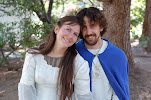There had been times up here when I had no food for many days in a row, so I didn’t waste any part of the deer or the cougar. I arrived early and spent an hour skinning them and hauled their hides back to camp. Then I went to work cutting meat off the bones. I was careful to keep everything as clean as possible – it would be ironic if I died of a bacterial infection or food poisoning after making it this long out here. As soon as I had a full sack of meat, I stopped carving and hauled it up to my camp. I repeated this process until all of the bigger chunks of meat were removed – by now it was mid-day. Next I began to disassemble the bones for easy transport up the hill, also carrying them to camp when I had a full load. It was early evening when I arrived with my last load. It was still cool enough that I didn’t need to worry about spoilage, but I had rigged each load to hang up off the ground so that the small critters wouldn’t get into it. For safety reasons, I had chosen a spot just outside of camp for food storage. I looked around at the hanging red meat and white bone – it was sort of macabre but it was satisfying.
I made my own smoker last fall out of several scavenged pieces of sheet metal and that was my primary method to preserve my meat. All of my smoking was done at night. It would take me several nights, maybe a whole week, to smoke all of this meat. The bones would provide my short term food – I could roast ribs and make soups for at least two weeks. Although my hunger became quite acute at times, especially this winter, I had never gone without food long enough to overcome my aversion to eating eyeballs and brains and other parts of the animals that would have been culturally disgusting to eat in my former life. I made an exception for tongue, heart, and liver. I knew these were important for their nutritional content.
Tanning the hides was a challenge. Ideally, I would have seasoned them with salt. I was still improvising and trying to make the leather smell better and last longer. My method of preparation could be better described as drying. I had a good sturdy pair of boots, but I only wore them when I had a heavy load to carry. Most of the time I wore leather moccasins of my own make. I had refrained from cutting two of last year’s hides and added them to my wool blankets for warmth during the nights this winter. With the hair still on, they were surprisingly warm.
I had collected a fair amount of sinew from the deer I had killed – it made good stitching for my moccasins and other various projects. I remembered a random conversation I had on a bus one day with a lady who was an expert on native cultures – she had explained how the natives used almost every part of each animal they killed. I reflected that the native Americans were probably always keenly aware of the need to survive and it was a way of life for them. I didn’t know if I would ever become as in tune with nature as I thought an Indian might have been, but this year in the wild had certainly changed the way I viewed things and the way I made choices. One inappropriate choice could make a dramatic negative impact on my life up here.
It was good to have a full belly. A few days of preparation like this would help me focus on what I needed to do next. Although I might be able to go on living here for a long time, I knew that was not really living in the long run. People need other people. The loneliness was the most challenging part of my isolation. At first it had been almost unbearable. I went through a lot of different emotions – fear, anger, worry – but I had learned to push through it and also enjoyed periods of satisfaction, happiness, and general comfort.
At the end of about a week I was ready to begin some reconnaissance of my situation. Last time I had ventured out of the canyon wasn’t a pleasant experience.
Tuesday, November 3, 2009
Subscribe to:
Post Comments (Atom)


No comments:
Post a Comment